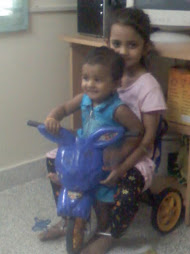She says it is generally thought that cardiac disease is not common, or its treatment is too expensive and only for the wealthy. "But we cannot tell a poor mother that if her child is lucky enough to get diarrhoea he'll survive, but if he gets heart disease, tough luck."
After a recent camp where 460 poor children — some from far-flung places like Kanyakumari and
She wants to do more camps, but has found from trips to schools and orphanages that "the parents get flabbergasted when you say your child might have a heart problem. Unless you can give them a proper diagnosis straightaway, it's terrible and cruel to tell them that a problem might be there. So we want to get an echo machine, do the test on the spot and tell the parents. For example, it could be a murmur in the heart, which is innocent. We can tell the parents this because later if another doctor sees this and thinks it is a serious problem, they should know the child will grow out of it."
If it's an organic problem, more tests could be done and if necessary the child could be admitted. With plans to do 200 operations a year, and each operation costing Rs 1.1 lakh in a general ward, the Fund needs to raise a total of Rs 2.3 crore a year; "this includes unforeseen expenditure in the form of complications, emergencies, etc."
The most common heart problems in children requiring attention are holes in the heart, blue babies, defective valves, and pus collection outside the heart. "If not attended to, all these children die. So we are talking about saving little lives," she says. In other words, a successful operation would mean many more years to live.
While the KJ Hospital gives rooms and care at a discount, the professionals are also decreasing their fees by 40 per cent and "60 per cent for complications because the cost goes up, and the child may be stuck to the ICU for a longer time," says Sreemathi.






No comments:
Post a Comment